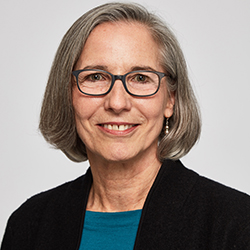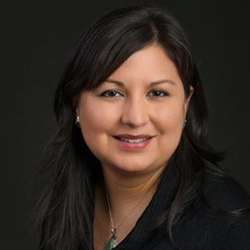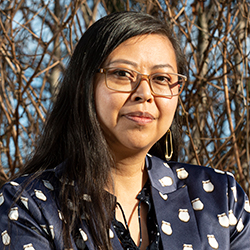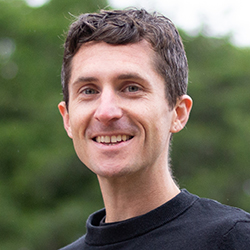After a long history of misuse and mistrust, Indigenous data require special care from librarians and others who manage them. Yet libraries and data repositories don’t have a clear roadmap for how to care for them properly.
A research team led by the University of Washington Information School is setting out to give them one, embarking on a two-year project to develop a framework for libraries and data repositories to ensure ethical care and stewardship of Indigenous research data. The project has been awarded a $500,000 grant from The Andrew W. Mellon Foundation.
Indigenous Data Sovereignty networks have developed a set of global principles to protect Indigenous peoples' interests and promote equitable participation in data management and use. Known as the CARE Principles, they reinforce the rights of Indigenous people to control the heritage embedded in their languages, knowledge, technologies and resources, including data collected about them by governments and institutions. CARE stands for collective benefit, authority to control, responsibility, and ethics.

Amid an open-data movement that encourages unfettered data sharing, the principles act as a counterbalance to ensure Indigenous peoples’ data is used for their benefit and respects their rights. However, “The principles are ahead of the practice,” said Carole Palmer, an iSchool professor who is leading the project. Over the next two years, the research team will seek to close that gap by developing a data services framework that aligns with the CARE principles, then testing the framework in a data repository.
“The idea is that Indigenous scholars and groups — families, tribes, elders and others — are the ones who should be determining how their data are controlled,” said Palmer, the iSchool’s associate dean for research. “That’s very foreign to how our data services in libraries and repositories operate now.”
In the past, much of the research on Indigenous people was conducted by non-Natives, and they collected data without regard for the implications of storing and using it, said Sandy Littletree (Diné, Eastern Shoshone), an assistant teaching professor at the iSchool and co-principal investigator on the project.

“There’s a history of bad management of this data, of collecting it and not respecting any protocols or where that information came from,” Littletree said. “We’re trying to overcome that.”
Indigenous researchers, scholars, and librarians will comprise at least half of the research team, with iSchool faculty Littletree and Assistant Professor Miranda Belarde-Lewis (Zuni, Tlingit) in leadership roles. Participation from Native graduate students and collaboration with American Indian Studies faculty members Tami Hohn (Puyallup) and Christopher Teuton (Cherokee) is vital to the project. They will contribute both from the perspective of researchers and from that of members of Native communities.
“There’s a lot of trust issues that will have to be overcome, but I’m grateful that we have some Indigenous scholars who want to work with us, who see the value of using these institutions in a way that can benefit their communities and their research,” Littletree said.

Libraries and digital curation centers at the UW, University of British Columbia and Washington State University are key partners as well. The project, called Digital Services for Indigenous Scholarship and Sovereignty, will help academic libraries gain a better understanding of major issues around data sovereignty and ensure that Indigenous groups control access to and ownership of culturally sensitive data, said Simon Neame, dean of UW Libraries.
“This project is a wonderful opportunity for the UW Libraries to integrate our principles around equity and inclusion with the growing area of data management, and to understand how we can more effectively work with our Indigenous stakeholders,” Neame said.
The project also will call on iSchool expertise with the Qualitative Data Repository (QDR), a national archive of data generated primarily by qualitative social science researchers. This project will help QDR extend its services for qualitative data to the humanities.
Palmer and iSchool Assistant Professor Nicholas Weber serve as co-technical directors for the repository, and Weber manages a team of open-source developers who work on it.

Weber’s work with the repository has focused on building tools that help researchers manage sensitive data while complying with legal requirements. He said he’s interested in a different approach to using technology for data governance that emphasizes Indigenous peoples’ control over how their data is managed and used.
“Right now, we have norms that have also outpaced technology,” Weber said. “Part of what this project can do is help the technology catch up to those principles.”
The researchers noted that the iSchool is well-suited to take on a project of this scale. It has extensive expertise in Indigenous knowledge and data curation, an existing relationship with the Qualitative Data Repository, premier research libraries at the UW and good relationships with other academic libraries. Palmer noted that by educating future data curators, the iSchool will help the new framework proliferate in the workforce and become the standard for managing Indigenous data.
“The iSchool is a perfect intersection because our data services curriculum prepares students to go out and take these roles in libraries and repositories,” she said. “We’ve been teaching about Indigenous data sovereignty for some time. Now we can make that more concrete by immediately bringing this project into the classroom.”